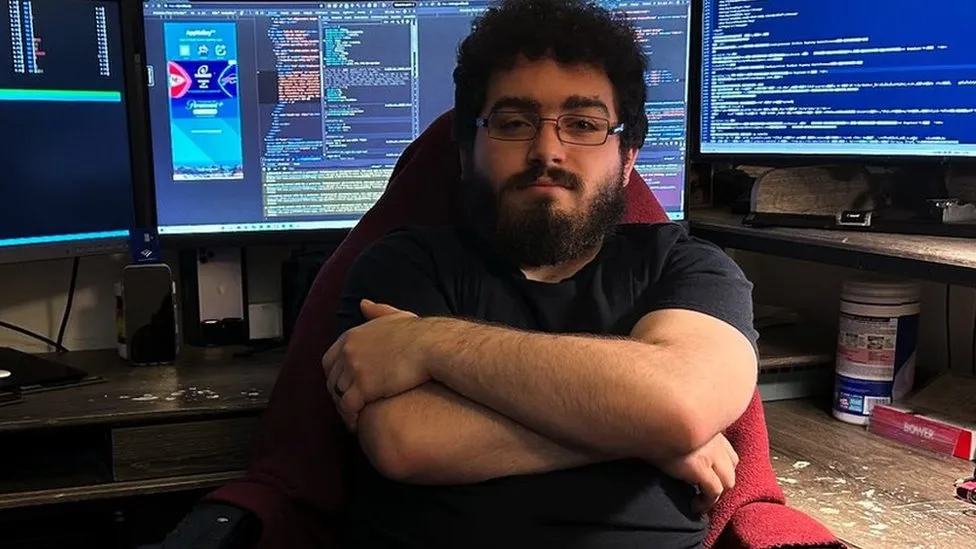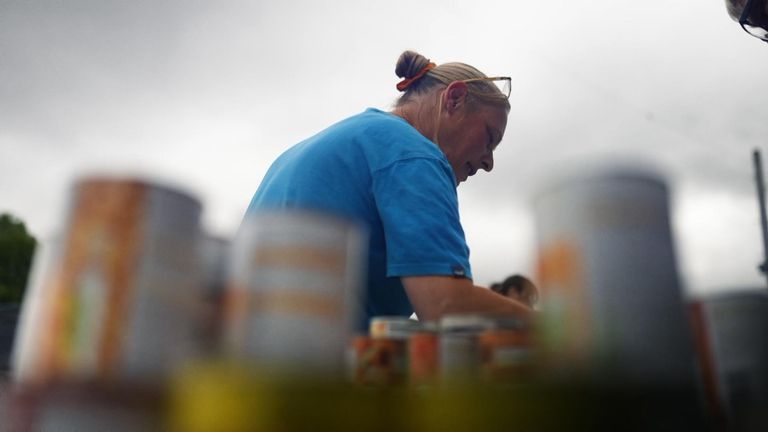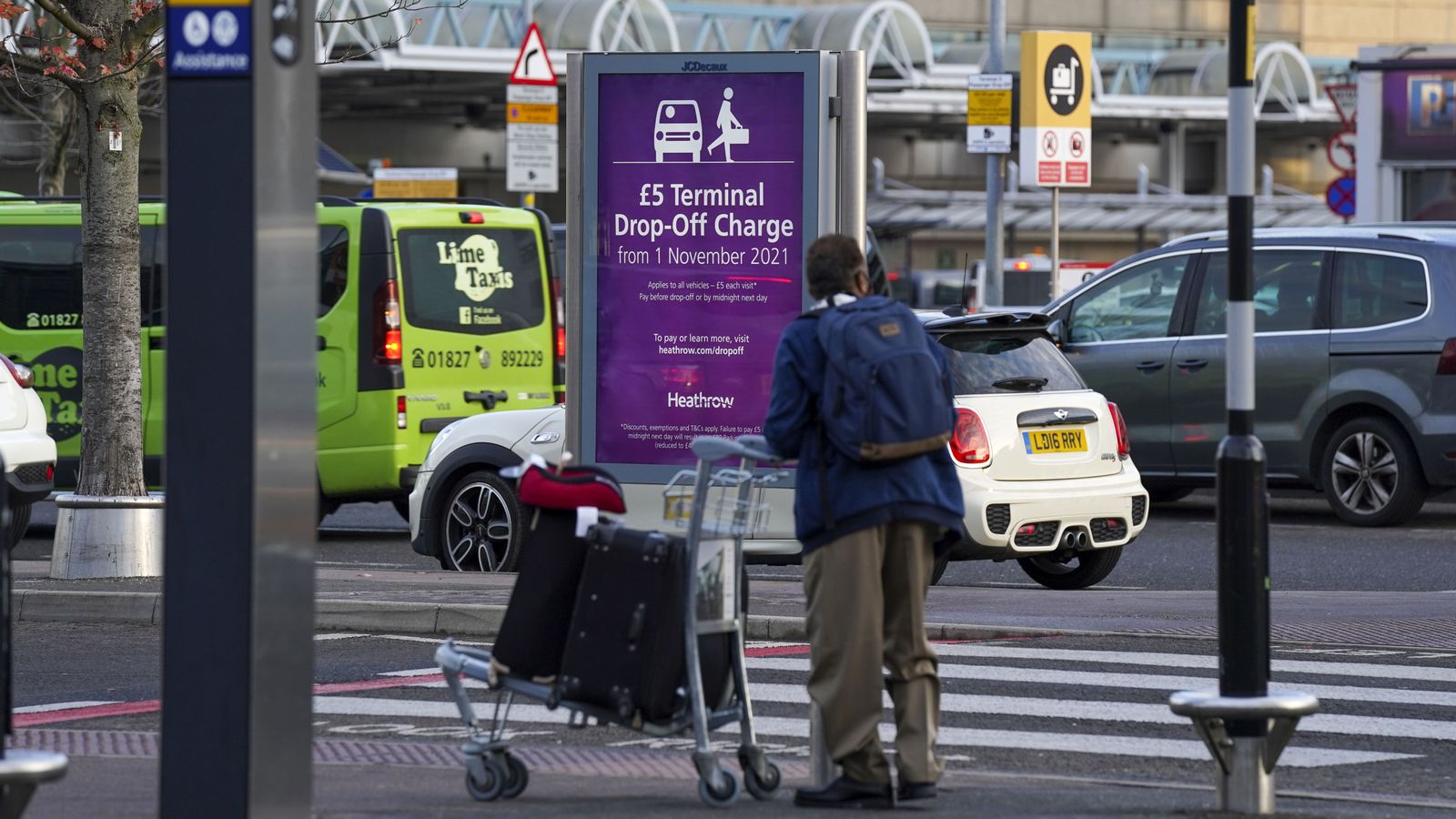Apple 'like The Godfather' with new App Store rules
This week Apple made the long-awaited landmark move to allow other companies to launch app stores on iPhones.

The tech giant was forced to act by EU politicians concerned about it having a market monopoly.
The decision is being watched closely around the world and was initially celebrated as an industry victory for businesses and consumers in the EU.
But Apple's strict new rules and fees are being heavily criticised, with Spotify calling them "extortion".
It is one of many companies, including Fortnite maker Epic Games, that has been pushing Apple to allow alternative app stores on iPhones.
'Grey business'
The EU lawmakers hoped their rule change would encourage smaller challengers to enter the lucrative iPhone market.
"Apple says it's opening up, but it still has a tight fist around iPhones", says Colton Adamski, a former hacker and businessman who lives near Chicago and is trying to launch one of the first alternative app shops in the EU.
The 22-year-old has been running an unofficial iPhone app store for more than six years.
It is, in his words, a "grey business" operating on the fringes of what is legal. For everywhere other than the EU, starting an app store is against Apple's terms, and installing apps outside the official App Store is prohibited.
The process, known as side-loading, is common practice on Android phones, but Apple has forbidden it since launching the iPhone, arguing it is a security risk. Apps need to be verified through the official App Store, the tech giant has long said.
Apple charges an average 30% commission to apps using its store, which it says is for the protection of consumers. Although the fee is controversial, it is true that generally Apple is more successful at keeping malicious apps out than other marketplaces like Google's Play Store.
Colton's app shop has attracted hundreds of thousands of downloads of unofficial apps and games. The BBC tried his service and was able to download apps to an iPhone through a simple workaround that changes the phone settings to override security warnings.
He has made a decent living operating his under-the-radar app shop, but has long wished to make one legitimately. So when the EU's new laws were announced in January, he jumped at the chance.
"It was so exciting we finally had the opportunity to go from a 'grey' store operating in the margins of what's allowed to finally launching a legit store," he says.
Apple is now the biggest smartphone seller globally and has the most affluent user base, so getting his store on to iPhones would be a major win.
Colton's excitement diminished though when he and his team started reading Apple's terms and conditions.
He compares Apple's rules to a gangster from The Godfather or Sopranos. Yes, you can open your shop on their turf, but you have to do exactly as they say or they will shut you down.
Apple insists that new app shops have €1m (£851,000) in the bank, but if their reserves dip below that figure, they can be closed down. Apple did not respond to our questions about why this is needed, but has previously said it is about weeding out dodgy, or scam, stores.
In the last few weeks, since Colton secured his line of credit, Apple has said that app developers of "good standing" for at least two years can also build an app shop without the €1m.
Colton's next hurdle to overcome is how to make a profit. Apple automatically bills new app stores half a euro for every download after one million. Apple says this Core Technology Fee is about keeping iPhones safe through security updates.
But Colton feels this is like a so-called protection fee paid to a mob under the guise of making sure a shop owner's business is safe.
So if someone downloads his app shop app but never uses it, he still has to pay Apple 50 cents.
Colton is determined to launch a challenger app marketplace in spite of the hurdles
Apple is also applying the 50 cent fee to individual apps that receive more than a million downloads, which is worrying some popular app makers.
The company has created a website where app developers can estimate how much money they would owe Apple if they choose to list their apps on other stores. It could total thousands if the million download figure is passed, but If they sold exclusively through Apple's App Store it would cost nothing.
Another charge being criticised is the 17% fee Apple will charge on any sales of an app sold on its App Store and elsewhere.
Apple argues that 99% of apps it currently hosts are small enough that they can reduce or maintain their current fees. "Ultimately, we want developers to have the flexibility to choose the business terms that make the most sense for them," a spokeswoman said.
But, according to Colton, just like The Godfather, Apple is making companies an offer they cannot refuse to keep them listing only on the App Store.
"Many app developers I know are angry and upset. How on earth can they explain this Core Technology Fee? We don't see Android pulling that nonsense," Colton says.
Android phones, running Google software, have historically been more open, allowing other app shops to exist like Samsung Galaxy Store and Huawei AppGallery.
But Google's own app shop - Google Play - is by far the most dominant player and, like Apple's App Store, charges apps on average 30% of their profits or subscriptions as commission.
EU lawmakers who created the Digital Markets Act have not yet given an opinion on Apple's alternative app store rules, and say they will assess them once they are seen in practice.
For now, Colton says he is determined to make his app store work. "It's proving to be really tough but me and my team are working hard because this is literally the future of iPhones," he said.
-bbc







